Although 2013 was another duplicitous year for Pakistan but the year ended on a positive note. Comparatively 2013 was a better year for Pakistan and was eventful and full of different up’s and down’s. At one side this was a historic year for Pakistan in which the first democratic transitions of the government happened, but on the other side different cities of Pakistan were hit by terror attacks killing hundreds of innocent Pakistani’s. At one side Pakistan found some new faces as heroes for the nation but at the other side we lost some famous Pakistani in different fields of life. The economy was improved and corruption was reduced by a few positions in the corruption index but was also hit by the highest inflation rates and low currency rates. Some new buildings like the Centaurus Mega Mall Islamabad were added to the infrastructure of Pakistan but many houses were destroyed in natural disasters like earthquakes and floods, plus the historic building of Quaid-e-Azam Residency was destroyed by terrorists.
Politics and Pakistan in 2013
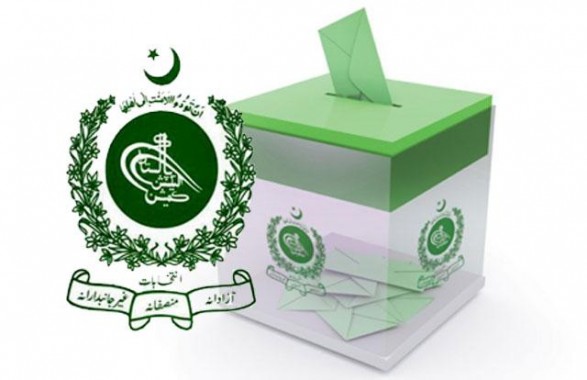
2013 was the election year for Pakistan. The parliament elected in 2008 completed its 5 years and general elections were announced to be held on 11th may 2013 under the supervision of Election Commission and the caretaker government.
As a result of these elections the fifth largest democracy of the world elected the members of its 14th National Assembly and achieved the milestone of its first democratic transition of power after 66 years of independence. PML-N the party of two times former Prime Minister Nawaz Sharif dominated the parliament and captured 176 of the 342 seats, Pakistan People party won on 39 and Pakistan Tehreek-e-Insaf emerged as a third leading party of Pakistan by securing 35 seats. Mian Muhammad Nawaz Sharif was elected as the Prime Minister of Pakistan for the third time.
Asif Ali Zardari completed his tenure as President of Pakistan and became Pakistan’s first democratically elected president to complete a full term. Mamnoon Hussain was elected as 12th President of Pakistan in July 2013 and took the oath of office at a ceremony in Islamabad in Sept, 2013.
Ex- President Pervez Musharraf ended self-imposed exile and returned to Pakistan in March-2013 to participate in the general elections but was thrown out of the election race when his papers were rejected from all four constituencies. Later he found himself in deep trouble when he was nominated in different murder cases including Benazir Bhutto and Akbar Bugti. Islamabad High Court ordered his arrest but he was kept under house arrest. When he got bail in these cases, another FIR was registered against his role in the Lal Masjid Operation. In Dec-2013 government started a treason trial of Pervez Musharaf in relation to his role in the events of 2007. This case is still in the court. His fate will be decided in the 2014.
Terrorism and Government of Pakistan in 2013
In 2013 to like previous years Pakistan was severely hit by different terrorist attacks. According to South Asia Terrorism Portal (SATP) data, Pakistan lost 5379 lives because of terrorism violence in 2013 including 3001 civilians, 676 security personals and 1702 terrorists/insurgents.
Major Terrorist Attacks
Year 2013 started with two deadly bomb blasts on Alamdar Road in Quetta. More than a 100 people were killed and 169 persons were injured in these blasts on the 10th of January. 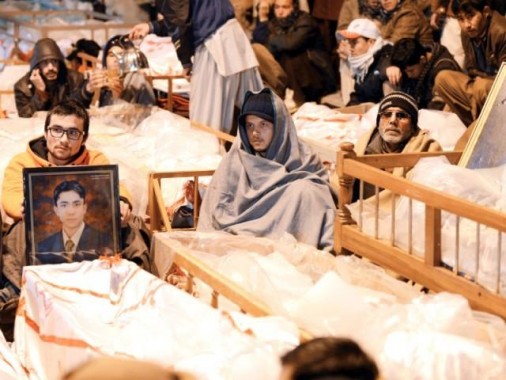 The relatives of the 169 deceased protested, refusing to bury the bodies of those killed until the Pakistan Army takes control of security in Quetta. On 13th January Prime Minister Raja Pervez Ashraf visited the protesters in Quetta and dismissed the Chief Minister Aslam Raisani and the members of his cabinet from their posts. Later his responsibilities were handed over to Zulfiqar Ali Magsi. Just after a month, in another bomb blast on Kerani Road-Quetta at least 84 people of Hazara community were killed and 200 injured. This time around 1000 Kg high detonable material was used in an Improvised Explosive Device (IED) that was planted in a water tank.
The relatives of the 169 deceased protested, refusing to bury the bodies of those killed until the Pakistan Army takes control of security in Quetta. On 13th January Prime Minister Raja Pervez Ashraf visited the protesters in Quetta and dismissed the Chief Minister Aslam Raisani and the members of his cabinet from their posts. Later his responsibilities were handed over to Zulfiqar Ali Magsi. Just after a month, in another bomb blast on Kerani Road-Quetta at least 84 people of Hazara community were killed and 200 injured. This time around 1000 Kg high detonable material was used in an Improvised Explosive Device (IED) that was planted in a water tank.
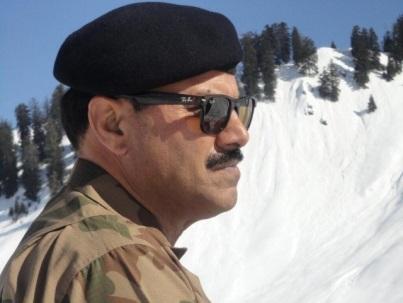 On July 26, 60 people were killed and around 180 were injured in twin suicide blasts at the busy market of Parachinar, Kurram Agency. Two different suicide attackers on motorcycles blew themselves in two different corners of the busy market where people were busy in Iftar shopping. On September 15, two senior military generals, Maj. Gen, Sanaullah Khan Nizazi and Lieutenant colonel Touseef and a soldier were killed in a road side bomb explosion in Upper Dir by terrorists when they were returning from a visit to troops posted on the border with Afghanistan. On September 22, in another major suicide attack, 85 people of the Christian community were killed and 145 were injured when two suicide attackers blew themselves up at the Saints Church near Qissa Khwani Bazar, Peshawar. Other than these major terror attacks, in target killings and other terrorist activities at least 2,700 people were killed in Karachi in 2013. But 2000 of these were killed by September 2013 before the start of operation against the criminal elements in 2013.
On July 26, 60 people were killed and around 180 were injured in twin suicide blasts at the busy market of Parachinar, Kurram Agency. Two different suicide attackers on motorcycles blew themselves in two different corners of the busy market where people were busy in Iftar shopping. On September 15, two senior military generals, Maj. Gen, Sanaullah Khan Nizazi and Lieutenant colonel Touseef and a soldier were killed in a road side bomb explosion in Upper Dir by terrorists when they were returning from a visit to troops posted on the border with Afghanistan. On September 22, in another major suicide attack, 85 people of the Christian community were killed and 145 were injured when two suicide attackers blew themselves up at the Saints Church near Qissa Khwani Bazar, Peshawar. Other than these major terror attacks, in target killings and other terrorist activities at least 2,700 people were killed in Karachi in 2013. But 2000 of these were killed by September 2013 before the start of operation against the criminal elements in 2013.
It can be analyzed from these figures that the terror attacks in Pakistan and the number of people killed in these attacks were comparatively less than 2012. The total number of deaths (5366) in 2013 is the lowest in last 5 years and a sudden drop in the terrorist activities was observed after the formation of this new government of PML-N.
Pakistan Army and Rangers operations against Terrorist in 2013
In 2013 Pakistan Army and other security forces of Pakistan managed to achieve two targets. First, the Pakistani security forces were successful in protecting major buildings and installations in the country; unlike 2011-12 the terrorists did not manage to attack any security building in 2013. In 2011, terrorist had attacked PNS Mehran Naval Base in Karachi and in 2012, a PAF base had been attacked in Kamra. Second, in different operations in FATA, Pakistan Army managed to clear different areas from the terrorist of TTP and other terrorist organizations.
FATA Operations
Jan 2013, Tirah valley clashes between Lashkar-e-Islam (TTP affiliate) and Ansar ul Islam (pro Pak militia) in Tirah Valley, Khyber Agency. Over 250 militants & civilians were killed and 400 others wounded in the three-month-long clashes. By March, the whole LI had gained control of Tirah Valley.  Pakistan Army initiated Op Rah-e-Shahadat on 5 April, 2013, with the aid of local tribal militias. The militants who slipped out from the Valley were targeted in Orakzai Agency. This operation continued until the start of June 2013. The remaining militant groups after being ousted from Khyber and Orakzai regrouped in North Waziristan, the stronghold of Haqqanis and Gul Bahadur. It can be said with certainty that the writ of the militants has considerably subsided in all the tribal agencies except North Waziristan. N-Waziristan was relatively calm in terms of terror attacks on soldiers stationed there until the Tirah operation, but increased terrorism cases, IED blasts etc. started getting reported soon after the army managed to wipe out Khyber and Orakzai agency. On 18 Dec, there was another suicide blast at an army check post after which the military launched a major offensive that can be rightly labeled as a calibrated reprisal in the Mir Ali region. The spokesperson of army asserts that this swift reprisal was against the militants that had holed up in that area.
Pakistan Army initiated Op Rah-e-Shahadat on 5 April, 2013, with the aid of local tribal militias. The militants who slipped out from the Valley were targeted in Orakzai Agency. This operation continued until the start of June 2013. The remaining militant groups after being ousted from Khyber and Orakzai regrouped in North Waziristan, the stronghold of Haqqanis and Gul Bahadur. It can be said with certainty that the writ of the militants has considerably subsided in all the tribal agencies except North Waziristan. N-Waziristan was relatively calm in terms of terror attacks on soldiers stationed there until the Tirah operation, but increased terrorism cases, IED blasts etc. started getting reported soon after the army managed to wipe out Khyber and Orakzai agency. On 18 Dec, there was another suicide blast at an army check post after which the military launched a major offensive that can be rightly labeled as a calibrated reprisal in the Mir Ali region. The spokesperson of army asserts that this swift reprisal was against the militants that had holed up in that area.
Karachi Operation
In September the Federal Government ordered the Paramilitary Rangers and the Sindh Police to launch a targeted operation against the target killers, extortionists and other criminal elements in Karachi. 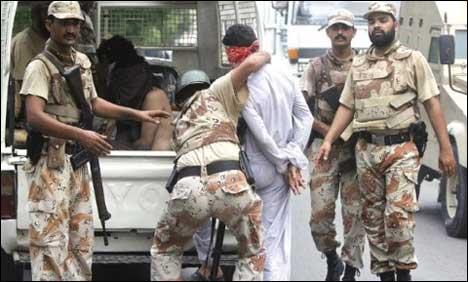 As a result of this operation a notable reduction in crimes has been detected. According to Sindh police around 40,800 different crimes were reported in 2013. According to Rangers 2,325 raids were made in 2013. About 1,283 raids that are over half of the total, were made in the last four months after the launch of the targeted operation. As a result of these raids the Rangers claim that 2,874 people were arrested and 5,628 weapons were recovered. In 2013, 172 policemen and 19 Rangers were killed by the criminals, while security forces killed 125 criminals in different encounters.
As a result of this operation a notable reduction in crimes has been detected. According to Sindh police around 40,800 different crimes were reported in 2013. According to Rangers 2,325 raids were made in 2013. About 1,283 raids that are over half of the total, were made in the last four months after the launch of the targeted operation. As a result of these raids the Rangers claim that 2,874 people were arrested and 5,628 weapons were recovered. In 2013, 172 policemen and 19 Rangers were killed by the criminals, while security forces killed 125 criminals in different encounters.
Baluchistan Operations
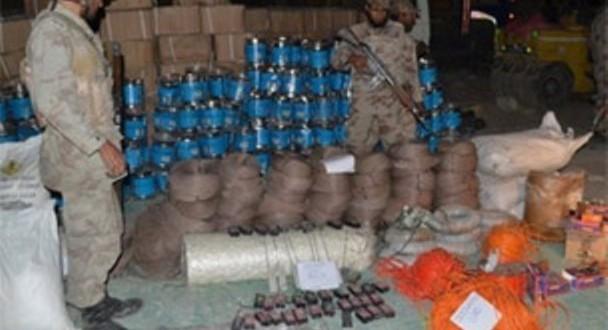 In April 2013, FC (Frontier Corps) foiled a terror attempt and seized more than 100 tons of explosive in a raid on a warehouse in New Adda area of Quetta. The operation lasted more than an hour and 10 suspects have been arrested during the operation. In Dec 2013, FC made a raid on two bomb factories and seized 1650 anti-personnel mines, 480 hand grenades, 2524 kilogram of explosives, 7 suicide jackets, 17,500 explosive sticks, 23 rockets, IEDs and other arms and ammunition. They were modern laboratories for experimenting on explosives, both factories were shutdown.
In April 2013, FC (Frontier Corps) foiled a terror attempt and seized more than 100 tons of explosive in a raid on a warehouse in New Adda area of Quetta. The operation lasted more than an hour and 10 suspects have been arrested during the operation. In Dec 2013, FC made a raid on two bomb factories and seized 1650 anti-personnel mines, 480 hand grenades, 2524 kilogram of explosives, 7 suicide jackets, 17,500 explosive sticks, 23 rockets, IEDs and other arms and ammunition. They were modern laboratories for experimenting on explosives, both factories were shutdown.
Drone Attacks
A significant decrease in drone attacks and killings as a result of these drone attacks was observed in 2013. According to South Asia Terrorism Portal (SATP) data, in a total of 24 drone attacks 158 people were killed and 29 injured. This year the drone attacks were relatively precise then the previous years.
Tehreek-e-Taliban Pakistan leader Maulvi Nazir with 10 other associates, was killed in the first drone attack made on 03 Jan-2013, made in the Sakundi Area of South Waziristan.
In another drone attack on 1st November-2013, Chief of TTP Hakimullah Mehsud was killed along with five other militants including Abdullah Bahar Mehsud and Tariq Mehsud, both key commanders and close aides of the TTP chief in the area of Dandy Darpakhel of North Waziristan.
 Killing of Hakimullah Mehsud at the time when he agreed on talks with the government and when a meeting had been planned with him, triggered anger among the people and politicians of Pakistan supporting the peace talks. Already controversial drone attacks became more controversial and US was criticized by interior minster Chaudhry Nisar and PTI leader Imran Khan for derailing the peace talks with this drone attack.
Killing of Hakimullah Mehsud at the time when he agreed on talks with the government and when a meeting had been planned with him, triggered anger among the people and politicians of Pakistan supporting the peace talks. Already controversial drone attacks became more controversial and US was criticized by interior minster Chaudhry Nisar and PTI leader Imran Khan for derailing the peace talks with this drone attack.
Pakistan Tehreek-e-Insaf workers stopped NATO supply to Afghanistan in Peshawar in protest of drone attack made by US in settled area of Tal-Hangu and till date the Peshawar route is blocked for NATO supply.
Clashes at Borders
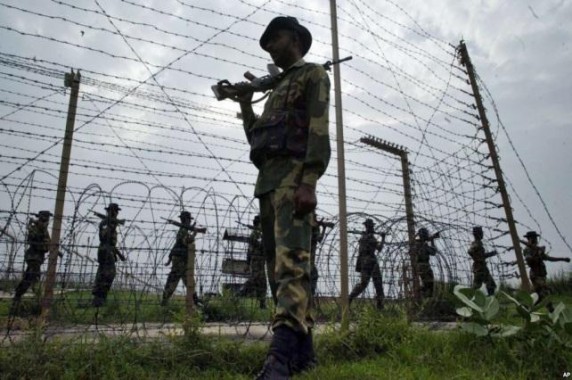
According to Pakistan Security Report 2013’ compiled by Pak Institute for Peace Studies (PIPS), there were about 103 clashes at borders with India, Afghanistan and Iran during 2013. Majority of the clashes were along Indian border but around 26 clashes were reported at Afghanistan and 9 at Pakistan’s border with Iran. At least 59 Pakistani civilians and security personnel lost their lives in these clashes.
After 10 quite years at LoC (Line of Control), a series of skirmishes were reported on LoC in 2013. It stared on 6th Jan when Indian soldiers crossed the border, attacked a Pakistani post and killed one Pakistani soldier.
On 8th Jan Indian authorities said that Pakistani forces crossed the LoC and killed 2 Indian soldiers and beheaded one of them. Pakistan denied the incident and offered investigation under UN supervision that was denied by India.
Tensions further escalated in August, 2013 when India accused Pakistani soldiers for killing 5 Indian soldiers in a cross border raid. Pakistan denied the accusations and blamed India for negative media propaganda.
Director General of ISPR Asif Bajwa said in press briefing that “after every Indian violation of the LoC, Indians fabricate something and rather put an allegation of violation on Pakistan to ease pressure”.
Another ‘Gun battle between Army, infiltrators in Keran Sector’ was exposed by PKKH in Oct-2013. PKKH revealed the identity of the two slain “Militants” and interviewed the survivor of this incident, who had gone there to collect some jari booti (weeds). Later, this report of PKKH was also reported in a leading newspaper of India.
Because of these border tensions, Pakistani High Commission in New Delhi was attacked by protesters of Congress youth wing and Pakistan International Airlines office was attacked by the mob of Shiv Sena activists.
Economy of Pakistan in 2013
2012 was a disastrous year for Pakistan economy and in the start of 2013 Pakistan was on the brink of bankruptcy. But few positive steps like approval of a deal with Iran for laying the Pakistan’s segment of a pipeline to deliver natural gas from Iran to Pakistan on 30 January 2013 commonly known as Iran–Pakistan gas pipeline and handing over of Gwadar Port, a warm-water,

deep-sea port situated on the Arabian Sea to China, gave some positive signs to the investors. Later the first democratic transition and some positive steps by the new Nawaz Sharif government supported the economy.
Pakistan faced worst power shortage in 2012 that deeply affected the industries that ultimately affected the economy of Pakistan. New Prime minister of Pakistan has shown commitment to resolve this issue and some new power plants were announced and work on the already approved Power Plants was started.
Similarly the Prime Minister’s first tour of China was appreciated by different economic analysts, where he signed energy and trade deals with China.
KSE 100-Index also witnessed some positive signs and the index crossed the benchmark of 25000 point in the start of December 2012. Pakistan improved by 12 spots in the global corruption index.
The Pakistani rupee sank to a record low versus dollar in 2013 but at the end of the year a positive trend in stock exchange also strengthened Pakistani currency.
Rising inflation rate will remain the biggest challenge for the government of Nawaz Sharif in 2014 as in Dec 2013 the annual inflation rate rose to 10.90 % and opposition parties including PTI and PPP protested against the inflation.
Similarly a landmark accomplished by Pakistan was achievement of Generalized Scheme of Preferences (GSP) Plus status. The European Parliament has granted GSP Plus status to Pakistan in the last week of 2013.
Revival of Pakistani Cinema Industry
In 2013, Pakistan also saw a revival of Pakistani Cinema Industry with the blockbuster “Waar” that broke all the previous records of business made by any Pakistani or foreign movie in the country.
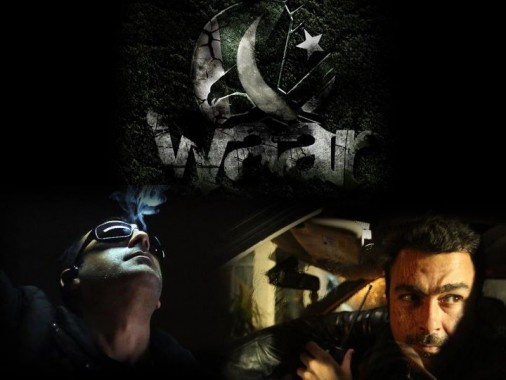
The confidence of investors, investing in construction of new multiplex’s in the major cities of Pakistan and improvement in the quality of the movies played a vital role in the revival of Pakistani Film Industry. Zinda Bhag and Lamha were the other releases of this year that grabbed attention of the viewers and also received different international award.
Waar remained the highest rated feature film of 2013 on IMDB. This trend made by “Waar” was followed by many professionals in this industry because of which a number of movies have lined up to be released in 2014.
Pak-India Relations in 2013
2013 did not bring any good change in the Pak-India relations but the relations between both remained rather tense in 2013 because of the skirmishes on LoC. The death of convicted Indian agent, Sarabjit Singh who was attacked by two inmates in Kot Lakhpat Jail Lahore in May-2013 also worsened the tensions between the two countries.
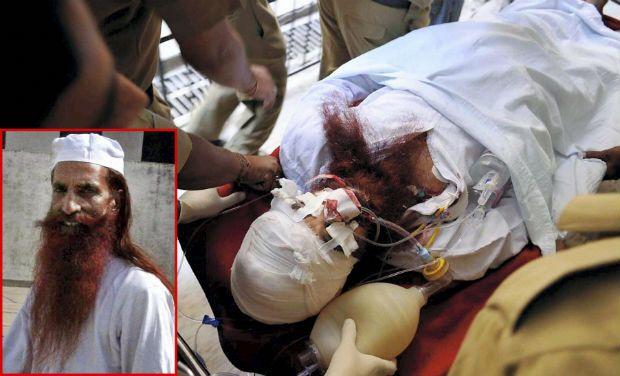
Just after the death of Sarabjit Singh, in a barbaric act a Pakistan prisoner Sanaullah Ranjay was attacked and killed in Central Jammu jail.
Despite of these tensions Nawaz Sharif government emphasized on bilateral relations. Because of his efforts and a positive response from India the prime ministers of Pakistan and India managed to meet on the sidelines of the United Nations General Assembly in September 2013. Although this meeting did not change much but is considered to be the positive step between the relations of the two nuclear powers.
Kashmir Issue in 2013
Kashmir problem remained the core unresolved issue in last 65 years of tensions between Pak-India. This year too, LoC, the border between two parts of Kashmir controlled by Pakistan and India remained the main reason of tension between the two countries.
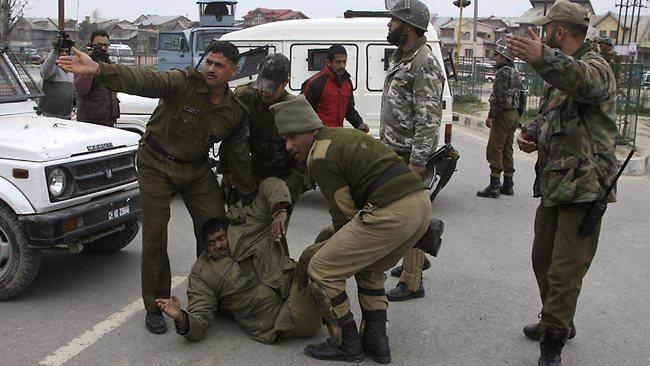
After a few years of silence in the political efforts for freedom, in 2013 different incidents were reported in which Kashmiri Mujahedeen attacked Indian troops in the Indian held Kashmir. In June-2013, a military convoy was ambushed by Hizbul Mujahideen in the outskirts of Srinagar in which eight Indian soldiers were killed and 13 Injured.
Earlier in March-2013 at least 5 soldiers were killed and seven injured in an attack at a Central Reserve Police Force (CRPF) camp in Srinagar by a fidayeen squad of Hizbul Mujahideen.
In Prime Minister Nawaz Sharif address to the United Nations in September 2013, Nawaz Sharif showed faith in the UN’s role in resolving international conflicts but at the same time criticized it in Kashmir issue and said “The issue of Jammu and Kashmir was presented to the Security Council in January 1948; and yet the issue remains unresolved after nearly seven decades.”
Pak-US Relations in 2013
Since US and NATO forces entered Afghanistan in 2001, Pakistan had remained a frontline ally of US but both countries showed mistrust upon each other on different occasions. In 2012 the relations between both remained tense because of the Raymond Davis case, the Abbottabad Attack and the Salala Post Attack, as a result of which the NATO supply for the troops in Afghanistan remained closed for several months.
Irrespective of drone strikes, the relations between Pakistan and US were improved in 2013. But drone attacks remained a highlighted issue between Pak-US relations. Once again NATO supply was blocked by the supporters of Pakistan Tehreek-e- Insaf as a reaction of a drone attack on the settled of Hangu in the KPK province of Pakistan.
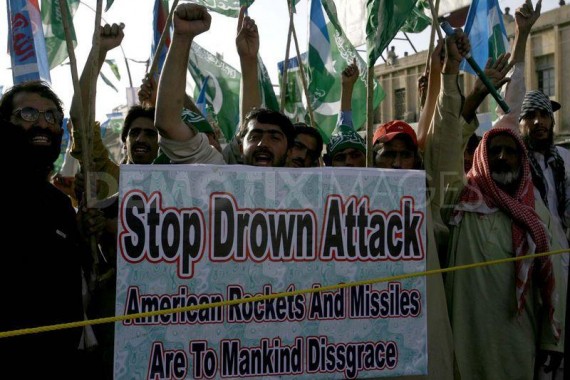
At the floor of United Nations General Assembly in September 2013, Prime Minister Nawaz Sharif told the UN assembly that the war against terrorism must be waged within the framework of international law. The use of armed drones in the border areas of Pakistan is a continued violation of our territorial integrity.” He added that this must end now and urged US to cease these strikes’, which has never happened till now and US continues its drone strikes.
Drones strikes were also discussed in the first meeting between the presidents of both countries, where Nawaz Sharif repeated the suggestion to stop drone strikes in Pakistan.
In October, US arrested two commanders of TTP in Afghanistan. Pakistan always protested against the free movement of TTP members in Afghanistan and protested against the US-NATO and Afghan forces negligence in this matter. The arrest of TTP commanders was a positive sign of improving Pak-US relations. US military forces captured Latif Mehsud a senior commander with TTP and in the last week of December Ikram Ullah Turabi was arrested in Nangarhar province of Afghanistan by US security forces.
2014 is the year in which NATO and US combat forces will leave Afghanistan. The question whether drone attacks will be stopped in 2014 remains open and will depend on whether Afghanistan will sign the bilateral security agreement or not but it is obvious from 2013 that if US continues there drone attacks it may face a strong reaction by the already drone-frustrated people, opposition parties and even by the government of Pakistan.
Pak-Afghan Relations in 2013
Like Pak-US relations, Pakistan relations with Afghanistan did not remainpleasant in 2012 either and the first half of 2013, because of the claims from both side for the supporting of Taliban in their territory by the other one. Pakistan showed concerns on the safe heavens of the commanders of TTP, especially Maulvi Fazlullah’s in Afghanistan near the Pakistan border and Afghanistan accused the ISI (Inter-Services Intelligence) for helping the Afghan Taliban in planning attacks on buildings in Afghanistan.
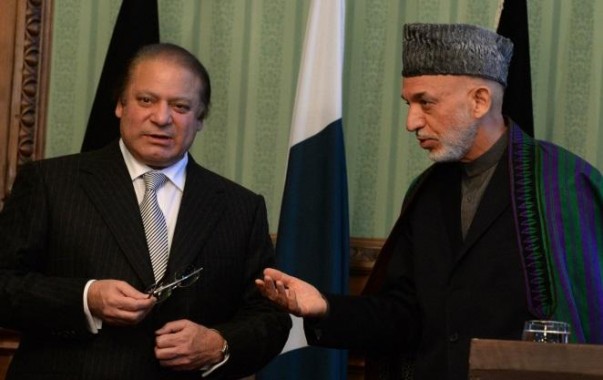 Pak-Afghan talks in Brussels to ease the tensions between the two countries did not help much either. But the relations started improving in the second half of the year. As a confidence building measure Pakistan freed top Taliban Commander Mullah Baradar in Sep-2013. Later in that month Prime Minister Nawaz Sharif emphasized on peace in Afghanistan and on the bilateral relations with Kabul in his address to UN assembly.
Pak-Afghan talks in Brussels to ease the tensions between the two countries did not help much either. But the relations started improving in the second half of the year. As a confidence building measure Pakistan freed top Taliban Commander Mullah Baradar in Sep-2013. Later in that month Prime Minister Nawaz Sharif emphasized on peace in Afghanistan and on the bilateral relations with Kabul in his address to UN assembly.
Prime Minister Nawaz Sharif visited Kabul in November-2013. In his visit Nawaz Sharif promised President Karzai to help Afghanistan and facilitate talks between the government of Afghanistan and Afghan Taliban.
Pak-China Relations
Pak-China relations were strengthened in 2013. On Feb 18, Pakistan awarded the multi- billion contract of construction and operation of the Gawadar Port to Chinese firm – China Overseas Port Holding Company (COPHC).
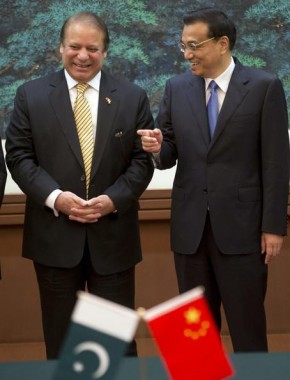
When Nawaz Sharif became Prime Minister of Pakistan, China was the destination of his first official foreign visit. During this visit Nawaz Sharif signed some vital agreements with China including the momentous understanding on “Pak-China Economic Corridor”.
China is also helping Pakistan to overcome the energy crisis. In October-2013, work was started on 2,200 MW nuclear power plant at Karachi beach with the assistance of China.
In November 2013, Nawaz Sharif made ground breaking on the Nuclear Power Plant built with the help of China that is scheduled to be completed in in 2019. According to officials the new project will be built on Chinese ACP-1000 model, also Chine will provide enriched uranium for fuel.
High Level Retirements and Transitions of Power
In 2013, Pakistan not only saw its first democratic transition of the government but also some other high level retirements, and new faces were added on the highest positions in different institutions.
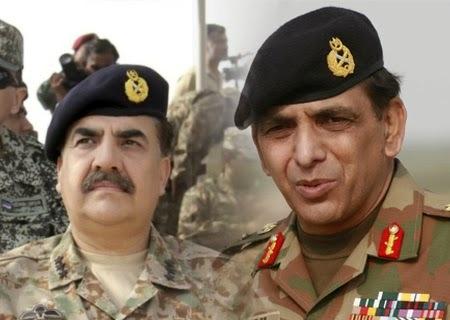 In 2013, Pakistan not only saw its first democratic transition of the government but also some other high level retirements, and new faces were added on the highest positions in different institutions.
In 2013, Pakistan not only saw its first democratic transition of the government but also some other high level retirements, and new faces were added on the highest positions in different institutions.
In September 2013, President Asif Ali Zardari completed his tenure as President of Pakistan and became first democratic president of Pakistan to complete his constitutional term. Mamnoon Hussain was elected the new president of Pakistan in 2013.
In November 2013, Chief of Army Staff, General Ashfaq Kayani got retired after remaining COAS for six years with some great achievements on his credit including the first democratic transition of government in Pakistan. Gen Kayani handed over his responsibilities to the new Chief of Army Staff Gen Raheel Shareef.
In December 2013, the Chief Justice of Pakistan Muhammad Iftikhar Chaudhry got retired. Iftikhar Chaudhry was considered to be the man behind the independence of the judiciary in Pakistan. During his tenure he questioned the organized and political giants of Pakistan that were previously considered to be un-questionable in Pakistan. He was replaced by Justice Tasadduq Hussain Jilani as the new Chief Justice of Pakistan.
Death of Some Prominent Pakistani’s in 2013
In 2013 some famous faces of Pakistan left this world but will be always remembered by the Pakistani’s.
Anwar Shamim: 5th Jan 2013, Air-Chief Marshal Anwar Shamim, the 10th PAF chief and a war veteran from 1965 and 1971 passed away.
Qazi Hussain Ahmed: 6th January 2013, the former chief of Jamaat-e-Islami (JI) and former lawmaker Qazi Hussain Ahmed died of cardiac arrest in Islamabad.
M.M. Alam: 8th March 2013, 1965 war hero, recipient of Sitara-e-Jurrat and record holder of maximum (9) shots in one single mission of air to air combat, passed away in Karachi at the age of 78.
Quraish Pur: 5th Aug 2013, a renowned scholar, writer, novelist, columnist and host of famous PTV program “Kasauti” died in Karachi.
Reshma: 3rd Nov. 2013, legendary folk singer and ‘first lady’ of folk music in Pakistan died at the age of 66 after battle with cancer.
2013, Achievements in the Fields of Education, Science and Information Technology

A Pakistani student of Froebel’s International School (FIS), Haroon Tariq broke the World record by securing a total of 47 As in his International General Certificate of Secondary Education (IGCSE) O Level and A Level exams from the University of Cambridge International Examinations.
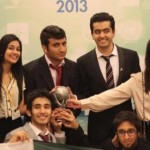
In 2013, Students of LUMS won the best delegation award at MUNTR (Model UN Turkey). This was the 7th consecutive win of Pakistani students at this conference. This year’s theme of the conference was “Forming Dynamics of Global Relations”. MUNTR is Turkey’s most prestigious Model United Nations (MUN) conference, and over the years it has gained the status of being the largest conference in Turkey and the neighboring countries.
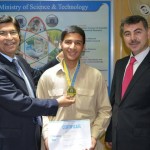
Waleed Bashir a student of IX Class in Pak Turk school in Quetta Baluchistan achieved a grand winner award and a gold medal in an International computer project competition held to find world’s best young IT wizard.
Waleed Developed a project titled “Green Automation” to win among 100 projects.
Students from different countries around the world participated in this competition.
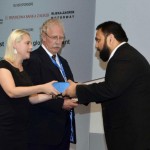 Dr. Muhammad Ehsan Khan, a young PhD scholar from Pakistan, won “Young Researcher of the Year Award-2013” by International Project Management Association (IPMA), Switzerland. Dr. Ehsan Khan attained his PhD in Strategy, Programme and Project Management. Dr. Ehsan was also the first Pakistani awarded with the James Snyder Award by the Project Management Institute (PMI) in 2012.
Dr. Muhammad Ehsan Khan, a young PhD scholar from Pakistan, won “Young Researcher of the Year Award-2013” by International Project Management Association (IPMA), Switzerland. Dr. Ehsan Khan attained his PhD in Strategy, Programme and Project Management. Dr. Ehsan was also the first Pakistani awarded with the James Snyder Award by the Project Management Institute (PMI) in 2012.

Pakistan’s first Cubesat satellite, iCUBE-1, was launched on Thursday, Nov 21, on-board Dnepr launch vehicle from Yasny launch base in Russia. For the uninitiated, a CubeSat is a type of miniaturized satellite for space research that usually has a volume of exactly one liter (10 cm cube), has a mass of no more than 1.33 kilograms. A team of around 20 faculty members and 15 students worked on the project which was initiated in 2009.
 Groopic and Tunacode, two Pakistani startups, have been accepted to be a part of Google’s Blackbox Connect program in the Silicon Valley. Blackbox Connect is an immersion program backed by Google. Groopic is an innovative photography solution for smart phones, which adopts a creative take with regard to photo editing and Tunacode delivers “accelerated computing solutions using state-of-the-art Graphics Processing Units (GPUs), APUs and CPUs.”
Groopic and Tunacode, two Pakistani startups, have been accepted to be a part of Google’s Blackbox Connect program in the Silicon Valley. Blackbox Connect is an immersion program backed by Google. Groopic is an innovative photography solution for smart phones, which adopts a creative take with regard to photo editing and Tunacode delivers “accelerated computing solutions using state-of-the-art Graphics Processing Units (GPUs), APUs and CPUs.”
 Farhan Maqsood designed the world’s fastest retina and face scanner algorithm called SmartXS. Farhan Maqsood has been recognized among the world’s brilliant minds by Massachusetts Institute of Technology Enterprise Forum (MITEF). Farhan Maqsood said that his product is currently used by the National Database and Registration Authority, the Pakistan Army and many multinational groups including Pepsico, Nestle and Tetra Pak.
Farhan Maqsood designed the world’s fastest retina and face scanner algorithm called SmartXS. Farhan Maqsood has been recognized among the world’s brilliant minds by Massachusetts Institute of Technology Enterprise Forum (MITEF). Farhan Maqsood said that his product is currently used by the National Database and Registration Authority, the Pakistan Army and many multinational groups including Pepsico, Nestle and Tetra Pak.
![]() Pakistani start-up ‘Convo’ has raised $5 million in investment capital from a top tier venture capitalist (VC) in Silicon Valley. It is, arguably, the first Pakistani company to receive such major funding from an institutional VC firm in the world’s IT hub. Convo is a multi-platform social network enterprise designed to allow teams to share and work together simply by combining discussions with messaging, images, documents, presentations and PDFs. Convo’s founder and CEO Faizan Buzdar said. “We are building out our team in both San Francisco and Islamabad”. “Faizan is a perfect example of why we (US) need immigration reform,” said US President Barack Obama in a tweet.
Pakistani start-up ‘Convo’ has raised $5 million in investment capital from a top tier venture capitalist (VC) in Silicon Valley. It is, arguably, the first Pakistani company to receive such major funding from an institutional VC firm in the world’s IT hub. Convo is a multi-platform social network enterprise designed to allow teams to share and work together simply by combining discussions with messaging, images, documents, presentations and PDFs. Convo’s founder and CEO Faizan Buzdar said. “We are building out our team in both San Francisco and Islamabad”. “Faizan is a perfect example of why we (US) need immigration reform,” said US President Barack Obama in a tweet.
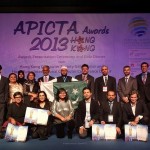 Team Pakistan won four Silver Awards at the Asia Pacific ICT Awards 2013 ceremony held at the Hong Kong Convention & Exhibition Centre from November 24-27, 2013. Pakistan received the runners up award in four out of the seventeen APICTA categories. A total of 220 software products from the Asia Pacific region competed in this year’s awards. APICTA (Asia Pacific ICT Alliance) is an international Awards Program which aims to increase ICT awareness in the community and assists in bridging the digital divide.
Team Pakistan won four Silver Awards at the Asia Pacific ICT Awards 2013 ceremony held at the Hong Kong Convention & Exhibition Centre from November 24-27, 2013. Pakistan received the runners up award in four out of the seventeen APICTA categories. A total of 220 software products from the Asia Pacific region competed in this year’s awards. APICTA (Asia Pacific ICT Alliance) is an international Awards Program which aims to increase ICT awareness in the community and assists in bridging the digital divide.
 Researchers at Aga Khan University (AKU) will develop a simple, glove-like device that will allow people to check their blood pressure, sugar and cholesterol, and record an ECG without blood tests. The device will consist of a leather glove having photodiodes, capable of converting light into current or voltage, blood pressure and electrocardiography sensors integrated with a central circuit. The measurements will be readable by patients in the form of colour codes that will tell them whether they are at low, high or moderate risk regardless of numeracy and literacy skills.
Researchers at Aga Khan University (AKU) will develop a simple, glove-like device that will allow people to check their blood pressure, sugar and cholesterol, and record an ECG without blood tests. The device will consist of a leather glove having photodiodes, capable of converting light into current or voltage, blood pressure and electrocardiography sensors integrated with a central circuit. The measurements will be readable by patients in the form of colour codes that will tell them whether they are at low, high or moderate risk regardless of numeracy and literacy skills.
 Pakistani Nurse at Agha Khan University Hospital won 2013 International Neonatal Nursing Excellence Award at 8th International Neonatal Conference in Ireland. This award recognizes the commitment of nurses working on the frontlines of newborn care in resource-challenged settings, where a majority of newborn deaths occur.
Pakistani Nurse at Agha Khan University Hospital won 2013 International Neonatal Nursing Excellence Award at 8th International Neonatal Conference in Ireland. This award recognizes the commitment of nurses working on the frontlines of newborn care in resource-challenged settings, where a majority of newborn deaths occur.
2013 ended on a positive note for Pakistan and things started to change in a good way. But it will entirely depend on the new government and other institutions of Pakistan how they manage to continue this positive trend in 2014. Some analysts have already claimed 2014 as a make or break year for Pakistan but if our new government and the other pillars of democracy managed to work together for a prosperous Pakistan then no doubt 2014 will be our make year inshaAllah.









That’s Pakistan
Death + destruction + bloodshed + mayhem + great social + technological achievements + the resilience of our nation in the face a natural and the not so natural devastation = MYTHYCAL STUFF for story books but historical facts for Pakistan.
Great nations are made of this.
HASBUNALLAHU WA NI’MALWAKIIL – ALLAHU-AKBAR!
Pakistan Zindabaad, Paendabaad.
I have a quote from the film WAAR. One of the best lines:
“the essence of who we are is the pain we can bear.”
Our enemies are testing us to the limit. They know we can bear enormous pain as a nation. We are down but not fallen when we stand we will be standing taller than our enemies. They will be looking for a place to hide.
Unlike our misguided leaders (may Allah SwT guide us all), we, as sons and daughters of this Paak Sar Zamiin must strive for Islaam and Pakistan. Indeed, Allah helps those who help themselves. After all, it is He who gave us this portion of Paradise (albeit a small portion) on planet earth. As the ayah of Qur’aan kariim explicitly mentions: ‘’THOSE WHOSE FAITH ONLY INCREASED WHEN PEOPLE SAID, FEAR YOUR ENEMY, THEY HAVE AMASSED A GREAT ARMY AGAINST YOU,’ AND WHO REPLIED ‘ALLAH IS SUFFICIENT FOR US, HE IS THE BEST PROTECTOR.’’ AL-IMRAAN (3:173)
May Allah SWT protect our beloved Pakistan. Ask only Allah
SWT for all our needs – worldly or of the hereafter.
Pakistan zindabaad, Paendabaad!